The Nerve of War and the Muscle of Peace
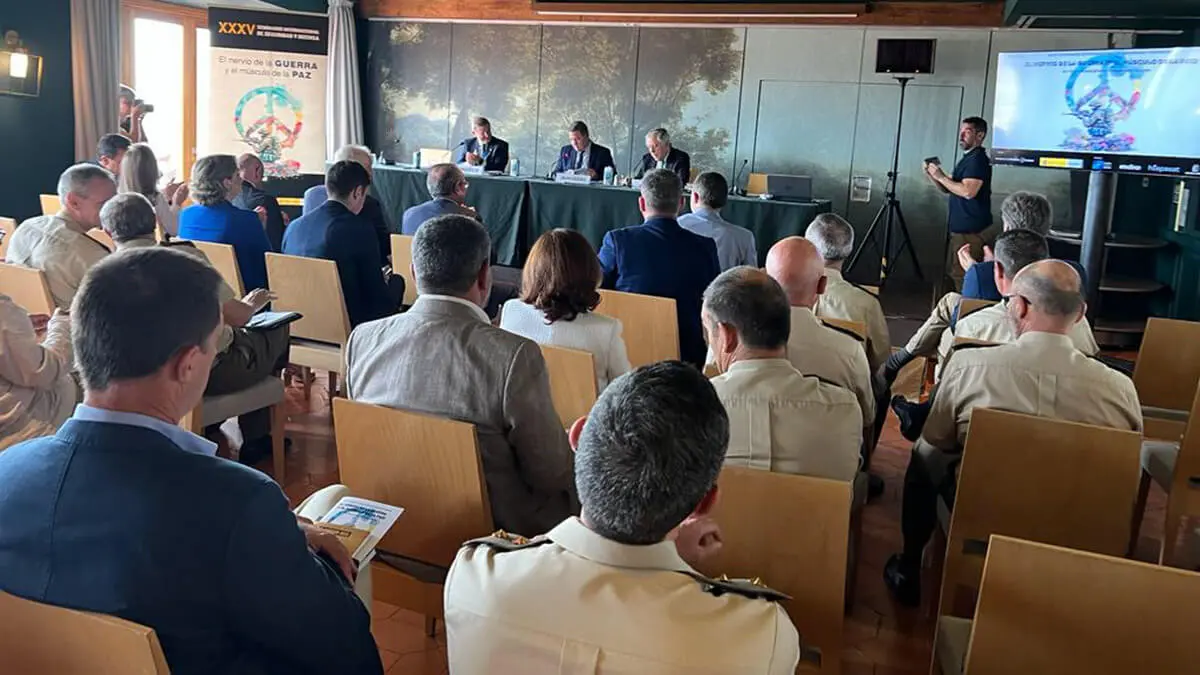
If there is one city in the field of national defence that represents Spain's military history, it is Toledo, a bastion and symbol of national defence for more than 500 years. The history of "the three cultures" is vividly painted in the imperial city by a series of historical figures.
Toledo, known as "The Imperial City", was the main residence of the court of Charles I and recognised as "the city of three cultures" because it was home to Christians, Jews and Muslims for centuries. Along with many other artists, illustrious nobles and kings who have raised Toledo to the top, the city of La Mancha has also been the birthplace or residence of historical figures such as Garcilaso de la Vega, El Greco, Juan de Padilla, Alfonso X El Sabio, Benito Pérez Galdós, Alonso de Covarrubias and Juana "la loca".
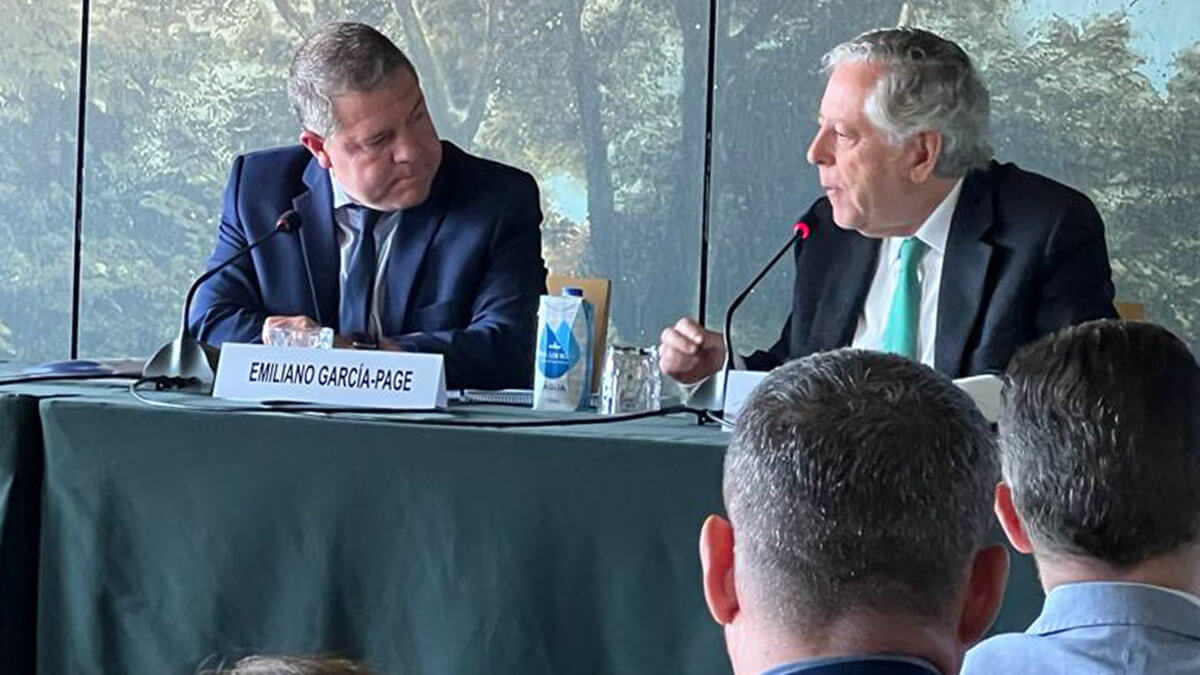
Inaugurated by the newly elected President of the Junta de Castilla-La Mancha, Emiliano García Page, Fernando López del Pozo, Director General of Defence Policy (DIGENPOL) and Miguel Ángel Aguilar, distinguished journalist and political analyst, the XXXV International Seminar on Security and Defence began. Fernando López del Pozo, after being introduced by Miguel Ángel Aguilar, gave the audience to understand that security is one of the keys to coexistence and citizen tranquillity. With nine days to go before the election of the European presidency, this is a crucial moment for Spain.
Regardless of the government's political leanings, defence policy is always in line with that of the European Union and NATO. Without decision-making capacity there is no geopolitical power. Europe's security goes hand in hand with NATO's quest for security. Spain's objectives within the framework of the European presidency are 4: to improve the European Union's freedom of action, to guarantee freedom of access to global common spaces (space, cyberspace and maritime space), to advance the EU's common agenda (Agenda 2030, climate change and security, violence against women), and to strengthen partnerships, since Spain always seeks to be a point of union and consensus in order to approach the rest.
Emiliano García-Page began by highlighting Spain's enormous growth in society and quality of life over the last 45 years. On the other hand, he implied that Spaniards suffer from "historical inconstancy". Entering the European presidency brings the nation that touch of discipline that, according to Page, "we need". The armed forces represent the great intangibles of this country. Spain, together with Portugal, is the perfect platform for building bridges of understanding due to the exchange of cultures throughout history.
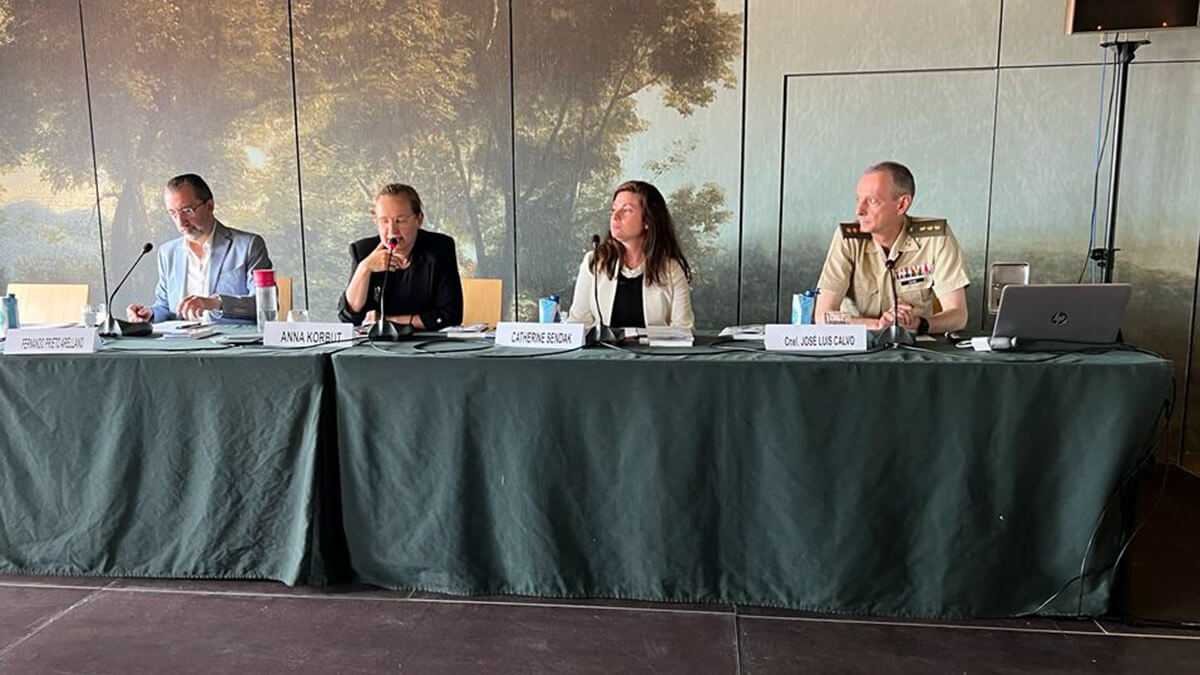
In the first speech of the seminar, Catherine Sendak, Director of the Transatlantic Security and Defence Program at the Center for European Policy Analysis (CEPA), began by thanking the European Union for the great support offered to Ukraine. The CEPA director explained how the economic, logistical and technological aid is managing to keep the pulse of the war with Russia on the ground.
While confirming that support will continue, she stressed that the entrenchment of the war may have unintended consequences for the Atlantic allies. She concluded by stressing that the most important thing is the search for balance, how to work with Ukraine's war needs in both the short and long term. The proverb "money is the nerve of war", attributed to Cicero, seems to be true in light of Russia's invasion of Ukraine. The outcome will depend on how much money Russia and Ukraine can spend on their armed forces (along with European and North American cooperation), but the war is also having disastrous effects on the political and economic landscape.
It is obvious that the Ukrainian people have been the main victims of the Russian invasion. From there, the losses or "collateral" damage caused by the corresponding political, economic and energy crises, the cost of gas, the disappearance of crops, etc., multiply and have had a "cascading effect" with no country escaping damage to the same extent.
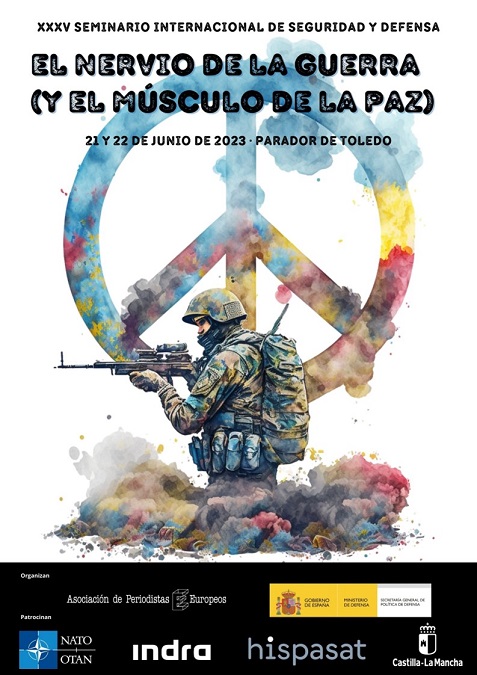
In the light with the above, Colonel José Luis Calvo, Chief Director of the Security and Defence Coordination and Studies Division, reflected on the outcome of the war and Europe's and NATO's plans for it. The war will end and there will be an aftermath. From a military point of view the war will change and the concept of defence has changed.
Three main traditional skeletons of warfare have changed: the previously unthinkable concept of armed conflict in Europe, military balances, and the influence of war on the organisations of the European Union. As a child of WWI and WWII, Europe is giving way to a new situation which means, above all, that there will be no more wars in Europe, a key reason why the European Economic Community, now the European Union, came into being. He adds that it was unlikely that, due to the architecture, especially when the Iron Curtain falls, protected by the OSCE, NATO and the EU, a new war on European territory would be possible.
The current war has revived the idea that aggression is possible and exists. The first palpable consequence is the influence on public opinion, which is more worried and, above all, less secure and therefore more concerned about its own situation.
The opportunity to examine who has benefited from the conflict, including the strengthening of NATO and the EU, the diminished position of Russia in the international community, and the difficulties the US would face if it fought a war thousands of miles away without suffering any personal losses or losing any arms or gas sales.
If before we had a bipolar world, now the situation is completely different. We have moved from multilateralism to a multipolar order where alliances of convenience are established with short-term interests, which produces a paradigm shift. Right now there are three very predominant powers. The United States as an economic and military power, China as an economic power, and Russia as a military and economic power with fissures due to the sanctions imposed by the West. Three great powers around which pivot different countries that have been emerging for some time, such as the BRICS alliance, which is a union of regional economies with concrete power with a Machiavellian ability that is under the tutelage of China and Russia.
Everything is interrelated. In Fernando's words: "Geopolitics is a spider's web where any vibration affects the rest". Saudi Arabia, for example, is the main US ally in the Gulf and, in turn, has made an agreement with Russia to lower prices by reducing oil production, as they are the ones who run OPEC and OPEC+. In the south, in geopolitical terms, there has been a lot of penetration in Africa by Russia and China, such as the intense fight for African lithium. At the same time, yuan transactions are a torpedo in the system structured around the Western global dollar system. Likewise, China's arbitrage in the East is also proving inconvenient for America in the Middle East. Iran is guarding the Syrian regime.
"The Russian-Ukrainian war has changed the global paradigm", Fernando Prieto Arellano, journalist and professor at the Carlos III University
He concluded by leaving a series of questions on the social and economic situation for personal reflection: What do we want to do with Ukraine? After the war? Who is putting up the money, how and how much? Is China going to get involved in repairing Ukraine? What political plans are there for the future of Ukraine? Is Ukraine going to join NATO? And the EU? Moreover, the professor dared to make a prediction about the end of the war: "The war will end when the Euribor is at 5%, it is currently at 4.6".
Carla Hobbs, from the European Council on Foreign Relations (ECFR), began by reflecting on how the Russian-Ukrainian conflict has had a positive influence on Beijing's economy, which has made Moscow dependent on the Chinese economy. As we have seen in the unwillingness to impose sanctions on Russia, this is indirect support for Putin. The global south has suffered more from food and energy prices, from Chile's lithium to Mozambique's gas. Carla highlighted three main beneficiaries: security, Spain, NATO and the promotion of Europe's cohesion in the defence sphere.
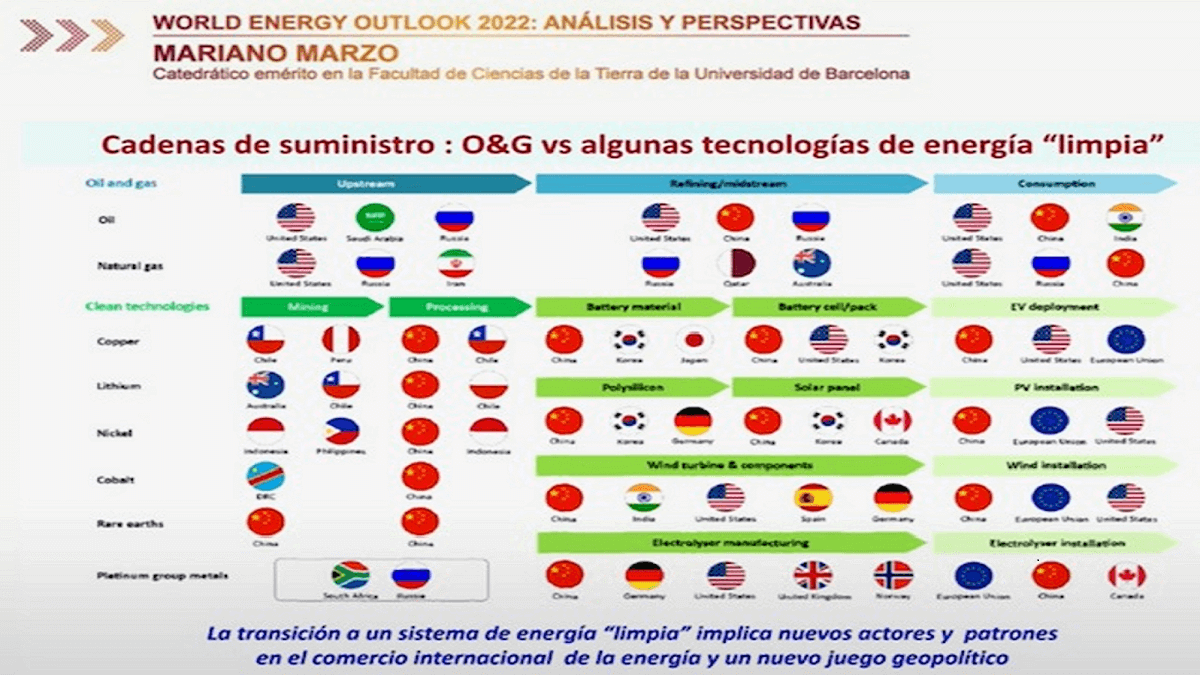
General Francisco Dacoba, Director of the Spanish Institute for Strategic Studies (IEEE), then confirmed the need for defence spending to be one of the few points in common between parties in this election year in order to reach 2% by 2029. The coin of war has two sides. The loser always loses without nuance. Ukraine's outcome, even if it wins, will be badly affected. On the other hand, if Russia wins, it will lose in the medium to long term, not only economically but also technologically and logistically. It is in nobody's interest but China's as long as it does not escalate into a massive nuclear arms race. The global South, without applauding and justifying the Russian invasion, does not align itself with NATO and the West in its denial of Russia. At the same time, they continue to do business with Russia, such as India and Turkey, especially in the export of hydrocarbons. China has ensured that the Global South does not align with the West. Spain, as an ally in the European Union and the Atlantic Alliance, enjoys good security. We have long been raising our hand for the security of the South, for the stability and development of the Maghreb and the Sahel, said the colonel.
The defence industry was caught off guard by the war in Europe. In the short term, the best thing to do is to look again at the US industry because it owns it. The armed forces are the raison d'être of the military industry. Defence's mission is to cooperate and contribute to the well-being and security of the Spanish people.
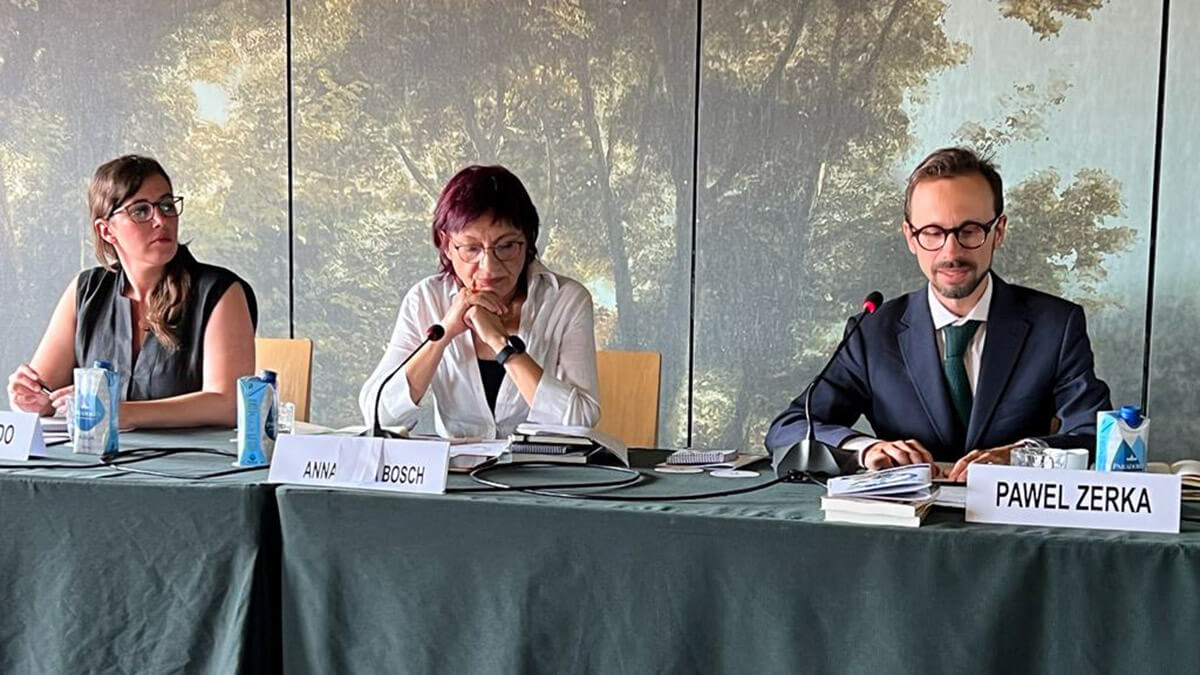
The European Union is progressing by dint of crises. War is going to become chronic, more or less intense, hybrid, and this is going to strain the EU. On the positive side, French President Emmanuel Macron has promoted the possibility of EU enlargement. What will happen with Ukraine? Everyone's security is in their own hands. Why is the NATO-US alliance the only way to unite the two? Dependence on NATO is not good for the EU. These are the reflections left by the debate on alliances and beneficiaries of the war.
The EU's dependence on NATO is a half-truth. There are many interests, but also many drawbacks. NATO should not meddle where it is not wanted. The conflict is provoking controversy among the Russian people against their rulers and with the world, which is shunning and marginalising them, manifesting a clear moral duality about who to blame without Russian citizens taking the blame. We are teaching China how the US responds to conflict. It is horrible to profit from war.
Pawel Zerka, senior policy fellow at the European Council on Foreign Relations (ECFR), based on a study conducted by the ECFR concluded that the attack on Ukraine has united the thinking of most Europeans who think that Russia is a rival of the EU, which should be kept out of any treaty or agreement. However, it showed the division of the north-south and east-west axes of the Union.
In the conflict, Russia occasionally appears to be at ease. But if Putin has waged war to prevent nearby nations from joining NATO, such as Ukraine, former members of the Warsaw Pact, or nations such as Sweden or Finland from joining the Atlantic Alliance, he has accelerated a process that runs counter to the intended outcome.
How far can Russian aggression be taken? Is the Kremlin using external conflict to promote internal cohesion? Has war gone from being the last resort to being the first to be used? What changes have been made to the geostrategic map of Europe?
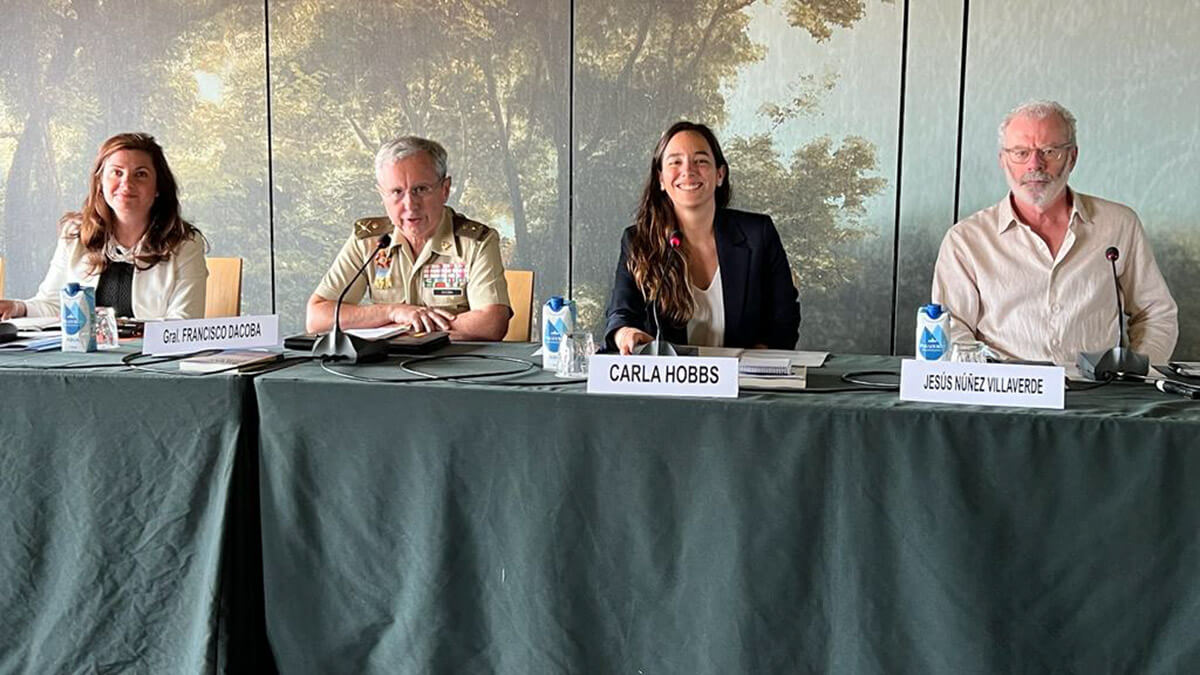
In the final speeches of the Seminar, Miguel Ángel Panduro, CEO of Hispasat, told how the Russian action has come as a shock to the young, as no one expected it, and revived memories of the past for the older ones. If Putin manages to win, even if only marginally, the conflict will be frozen. Allies' weariness may be criminal for Ukraine. The problem with the sophistication of war materiel is knowing how to use it and having what it takes to keep it from being stranded.
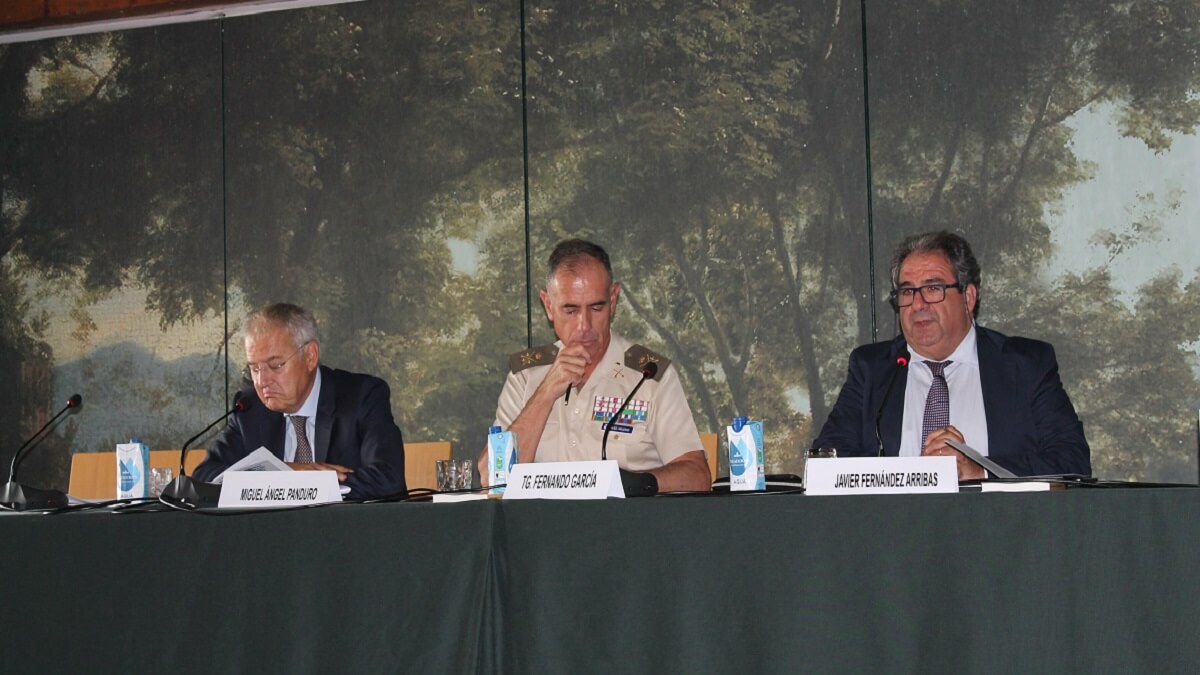
In Toledo, Cervantes already spoke of arms as having the object and purpose of peace, which is the greatest end that men can desire in this life. The 21 NATO countries agreed on 2% after Russia's invasion of Crimea. However, Europe suffers from a defence problem. Russia increased defence spending by 300% in 10 years, China by 100% and Europe by only 20%. We have missed the 2% target and that is what is costing lives today.
Bureaucracy can overcome urgency and this is something we need to change and speed up, as happened with the COVID-19 pandemic crisis. He concluded that in the future it will be seen as a war space, a new battlefield. Spain will have the best satellites at combat level, he concluded.
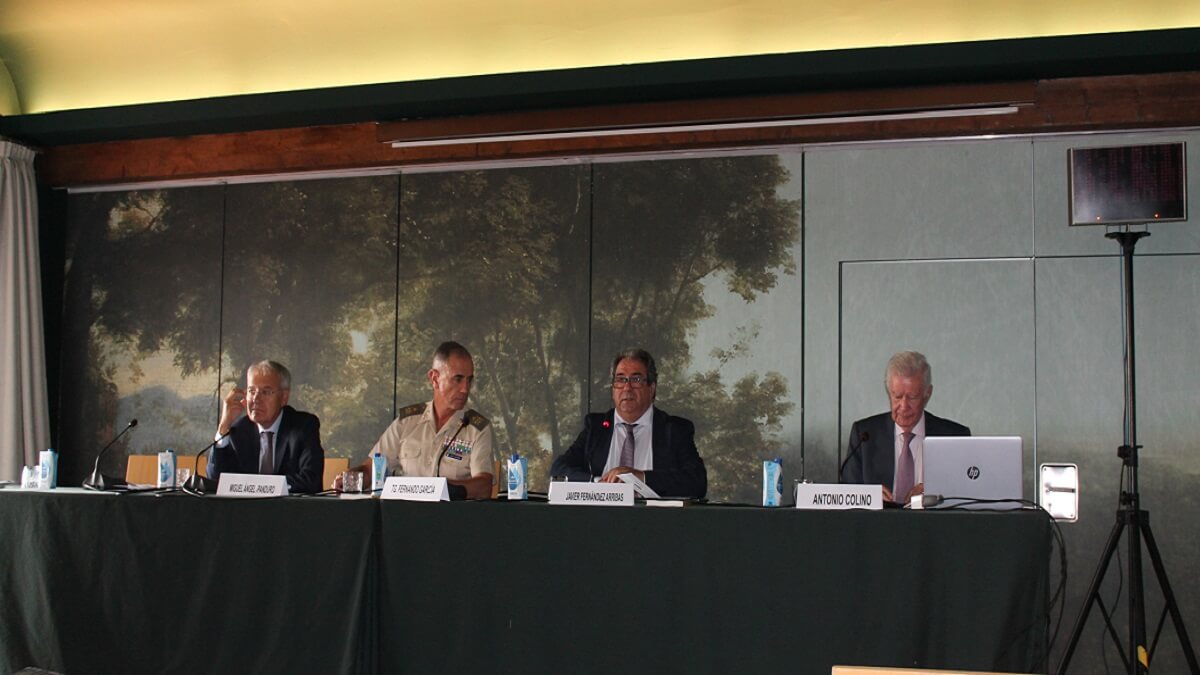
Lieutenant General Fernando García, Chief of the Joint Defense Staff (JEMACON) described the work of instant monitoring of everything that happens in Ukraine in order to draw the corresponding consequences and adapt as far as possible to Spanish capabilities everything that represents a decisive evolution. In this chapter he highlighted the relevant role that drones are playing and their influence on military deployments.
Antonio Colino, president of the Royal Academy of Engineering, insisted that any society must hae water and energy. Water conditions the establishment of cities, industries and rural depopulation. There is no army to curb water scarcity. 20% of 1% of 1% of 1% of 3% of global water goes to domestic use, a fact that should prompt a debate on how important water use is. Energy is almost as fundamental as water. 70% of energy today comes from coal, oil and gas, while renewables take up 4%. The real world war will be over resources..
"The next wars will be over water," Antonio Colino
"If money is the nerve of war, let culture be the muscle of peace"," Nicolas Bouvier to Cicero's statement.








